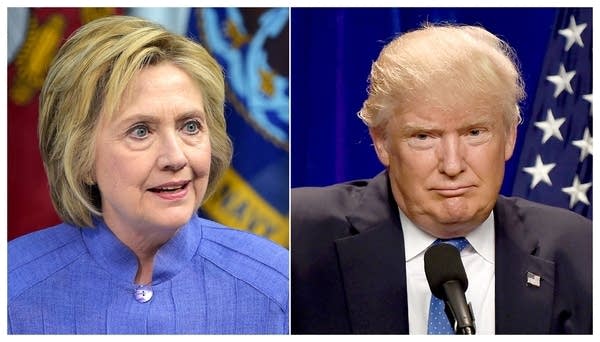How did Trump's and Clinton's economic policy speeches compare?

This combination of file photos shows Democratic presidential candidate Hillary Clinton, left, on June 15, 2016, and presumptive Republican presidential nominee Donald Trump on June 13, 2016.
DSK | AFP | Getty Images
Go Deeper.
Create an account or log in to save stories.
Like this?
Thanks for liking this story! We have added it to a list of your favorite stories.


